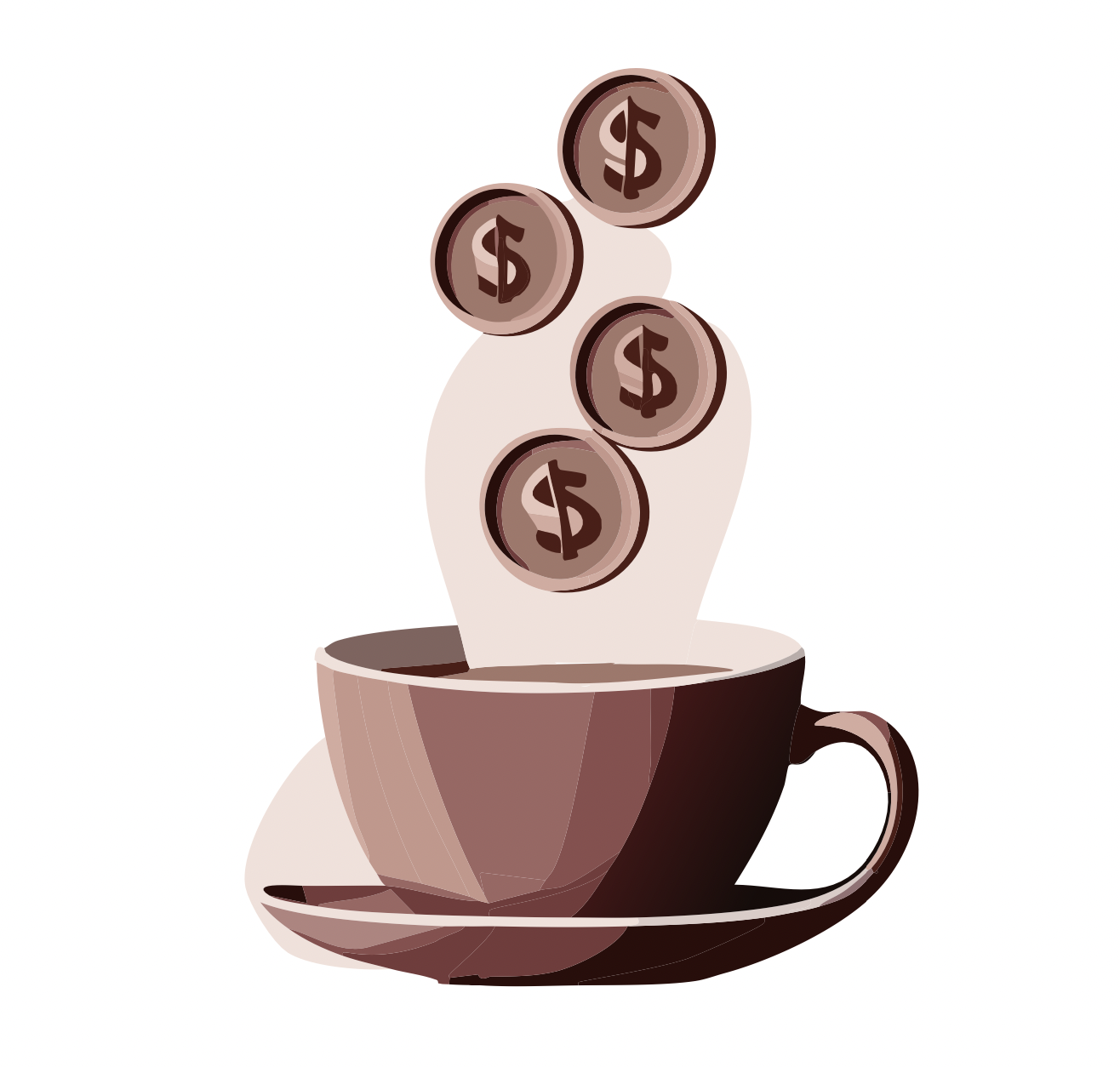
I am on Ussher 4, desperately trying to learn from last year’s mistakes and catch up on some work. The first hour goes well, I am making significant progress and feeling about as humble as Zeus. The youthly hubris does not last long – hour two sees decreasing productivity. Is economics even real? Hour three starts and I find myself looking everywhere but at my notes. Time is creeping by. I am simultaneously bored and overwhelmed. Ah, the college experience! I escape the situation the only way I know how: I reach for my phone and text my friend the magic word: “Coffee?”
I walk down the Ussher stairs, taking care to tread on every bubble I see. Outside, I meet my friend, who is kind enough to join me in my endeavour and enable my library escapism. Walking past the cricket pitch, everything seems much less serious. The grey cloud above my head is lifting and I start to develop an annoying spring in my step.
Before I know it, we have reached our destination. I open the door to Honey Truffle, my current favourite cafe just opposite Goldsmith Hall. I order an oat milk (no additional charge here!) cappuccino with two extra shots. We walk back to campus, sit on a bench, and chat. In an estimated 30 to 300 minutes, I will return to the library, refreshed.
The humble coffee break is hardly uncommon in my circle of college friends and acquaintances. But why do we spend so much of our time, and money, on coffee?
Caffeine-induced economic irrationality
This behaviour makes little sense to any economically rational person (have I mentioned I study economics?). Looking at my spending, this is the easiest area to cut back in. I am very aware of what I spend in other areas of my life. I tend to overthink every item I swipe my card for – except for coffee. In fact, coffee is one of the last things I will cut down on. I would rather convince myself that I do not need a new weekly planner or book from Hodges and Figgis, and redistribute the funds towards caffeine. I see a good number of students behave in a similar way.
Maybe the reason for this behaviour is more obvious if we consider its alternative: making coffee at home and bringing it in. This is where most have their first cup of the day. The cost of making a cup of coffee at home is a fraction of what it costs in a café. If it is that eye-wateringly more expensive, why do students buy coffee?
Common arguments that do not work
Some argue that students have just become snobbish, expecting the best of the best, while unconcerned with the cost. Of course, the quality of café coffee is better compared to that made at home in a cheap French press. However, students cut back on quality in other areas of their lives. They are rarely seen dining in Michelin-star restaurants or buying designer handbags.
Others might say that students are lazy and lack the necessary time management skills to set these few minutes aside every morning. I would advise such critics to look at the energy poured into the average arts block outfit. Does our consumption of coffee solely stem from our lack of self-organisation? I do not believe it does.
I would even argue that it makes me more productive. If its net effect was negative, why would so many employers provide coffee machines in their place of work? This too encourages social interaction between co-workers and gives them a break from staring at a screen. It encourages the more time-intensive alternative of getting up and making your coffee at your place of work compared to asking employees to bring their own beverages to work. Businesses know the importance of social interactions for productivity. This is a way to combine their employees’ caffeine needs with their social needs.
Alternative explanation: Coffee as a ritual
I do not believe that our coffee consumption is a product of our financial carelessness, but rather a subconscious expression of our need for breaks.
The coffee that you get from a café satisfies a very different set of needs than the coffee that you make at home. Bringing your own coffee or beverage of choice into college means that you can consume it at any time. You could drink it while working, during a lecture, or on the rushed walk to a tutorial. The break it creates in your day is no longer than the time it takes you to unzip your bag and unscrew the lid (in other words, seconds). It will merge into your routine rather than compartmentalise it. Getting a coffee is the non-smoker’s cigarette break. It enables a change of setting and a change of mindset.
A cup of coffee is a small luxury. Bringing your daily supply of coffee into college means depriving yourself of this expensive, but nonetheless comparatively affordable, act of self-love. It can be social when you want it to be. It can also just be a moment to be alone with your thoughts and your music. It is a time to pause and reflect. To me, coffee has become a ritual, and not one I am willing to give up for the sake of my budget.






